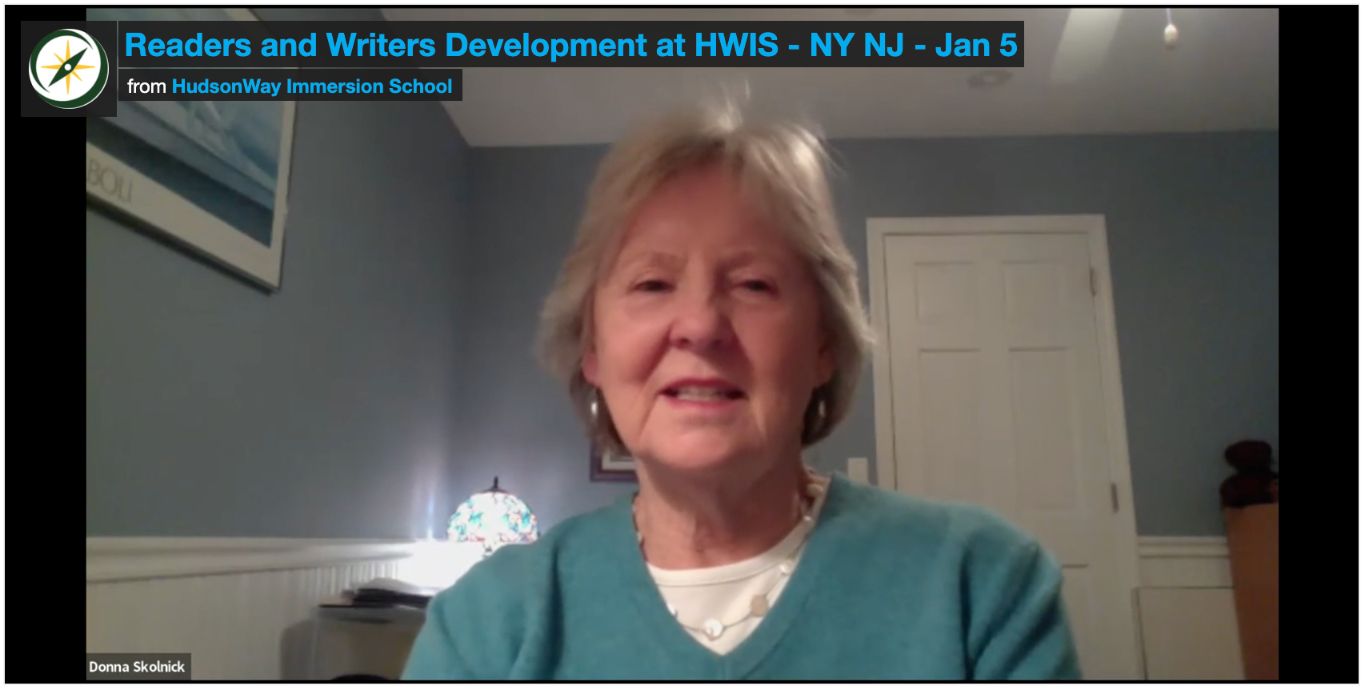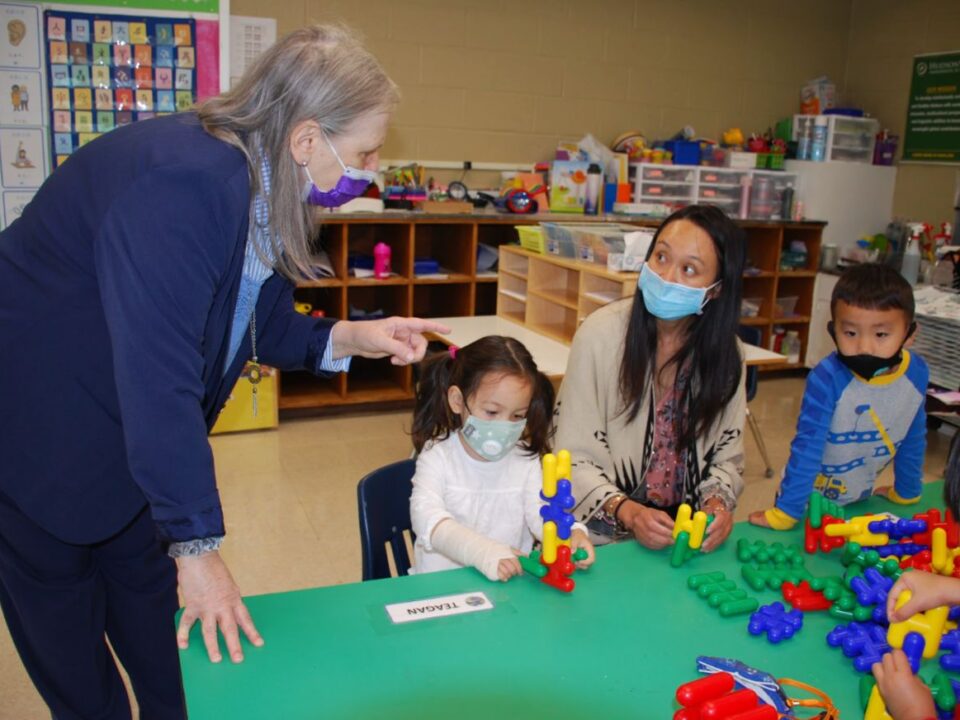
Scholastic® Literacy Pro
January 30, 2022
Spanish and Mandarin Skills in Demand
April 1, 2022A Summary of HWIS’ webinar on Readers & Writers Workshop led by Donna Skolnick
On January 5, HWIS held a webinar for parents led by Donna to discuss HWIS’ approach to developing writers. Read on to learn how HWIS is developing strong readers and writers in any language. Understand the approach behind the Teachers College Readers and Writers program and how it is being implemented at HWIS.
Donna was an ELA leader K-5 in Westport Public Schools, CT, taught middle school literature at Whitby School in Greenwich CT, and has consulted with multiple schools for the implementation of reading and writing workshops. Donna is a national workshop presenter and a published author of More Than Meets the Eye and On Their Way, books for teachers on reading and writing.
Writing instruction has come a long way through the years. A lot of the growth in our understanding of how to teach children to write comes from Lucy Calkins, a researcher and professor at Teachers College, Columbia University.
- The most important part of writing is that students want to write. Humans are programmed to love stories. A writer needs to have a story to tell or information to convey. The second most important part of writing is having an appreciative audience. Writing is communication and communication without an audience is incomplete. In the writing classroom, students need to read their writing to their peers and teachers, and listen to their peers and teachers share their own writing.
- Research on teaching writing points to 4 steps, which happen in sequence, but may be revisited in a recursive and interactive way:
- Pre-writing/Rehearsal: ideas, drawings, words, organizers, etc.
- Drafting: quiet time to write and experiment. Student incorporate skills and conventions that have become automatic.
- Revision: the writer re-sees the draft and may change ideas and or words or improve the draft.
- Editing: polishing for publication. Checking that spelling, punctuation, capitalization, grammar and other conventions are correct.
- Writing workshop and writing units of study come from the Teachers College Reading and Writing Project. Decades of research support this method of writing instruction.
- The units of study give teachers crystal clear guidelines and on-the-job advice for teaching effective and efficient writing workshops.
- The units are based on the developmental progression of learners. Teaching is all about knowing where a child is in this progression, knowing what comes next, and recruiting the learner to be excited to tackle the next step.
- The components of the writing workshop are:
- A mini-lesson that takes about 10 minutes on procedures, skills, and the craft of writing
- Connection: “Writers… we have been working on…”
- Teach: “Today I want to show you..” “Watch me as I…”
- Active Engagement: “Now it’s your turn to…”
- Link: “Today and every day as you are writing, remember…”
- Writing time with individual conferring time with the teacher
- Group share
- A mini-lesson that takes about 10 minutes on procedures, skills, and the craft of writing
- Learners set clear goals and receive frequent feedback tailored specifically for them. The hear the ways that their writing is getting better and the next steps.
- The units of study come with rubrics and writing samples for effective assessment
- Units focus on three types of writing:
- Narrative: personal, fiction, fantasy, historical fiction, memoir, biography and narrative non-fiction
- Informational: how-to, directional, lab reports, fact sheets, news article, feature article, blog, website, report, research report, analytic memo, non-fiction book.
- Persuasive/Opinion/Argument: persuasive letter, petition, persuasive speech/essay, literary essay, historical essay, editorial, op-ed, research based argument.
- To support writing at home, parents should:
- Write yourself and share your writing with your students
- Notice writing that is wonderful and share it with your children
- Read to your children, notice how language is being used
- Ask your children to share what they are writing. Let them read it to you. Do not take the paper or look over their shoulders. Notice good ideas, great words, dialogue, humor, and tell your child.
- Leave the teaching of conventions, spelling, grammar, etc. to the teachers.
Here is a link to the webinar https://vimeo.com/






